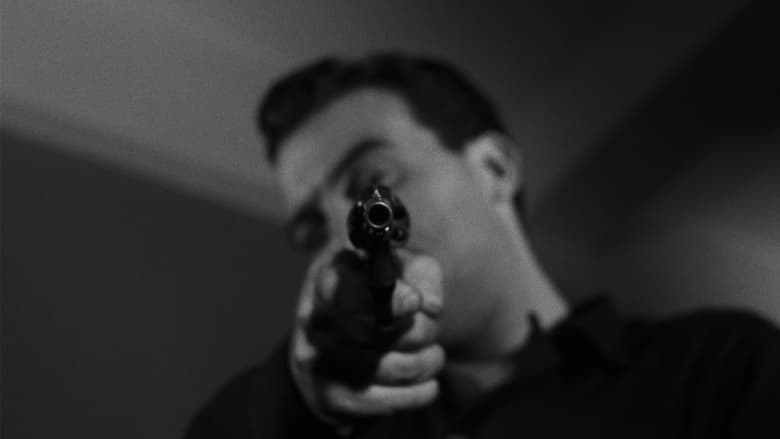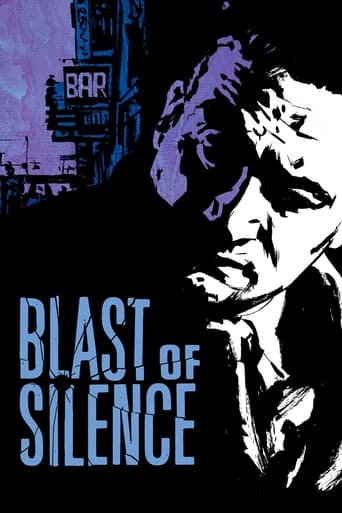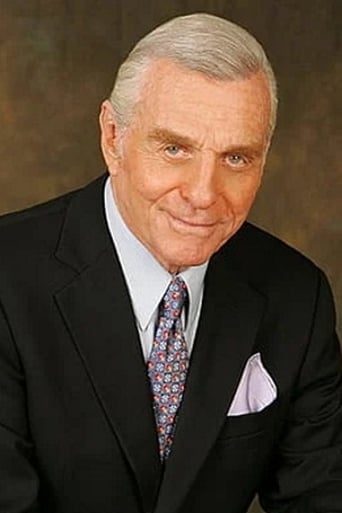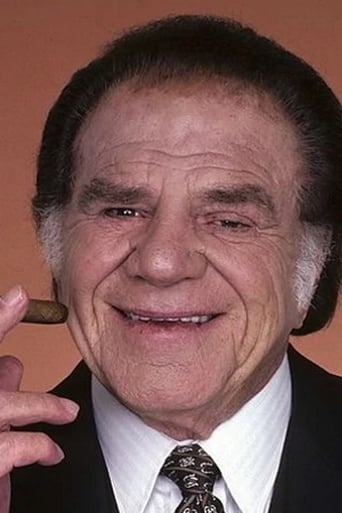A hired killer from Cleveland has a job to do on a second-string mob boss in New York. But a special girl from his past, and a fat gun dealer with pet rats, each gets in his way.
Similar titles
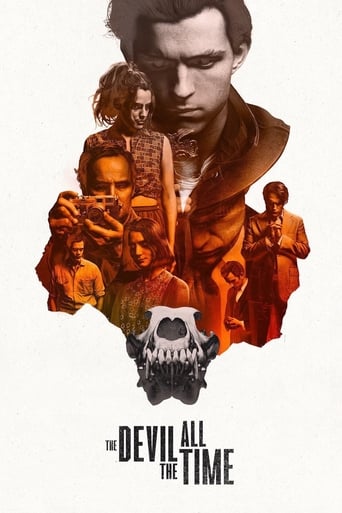


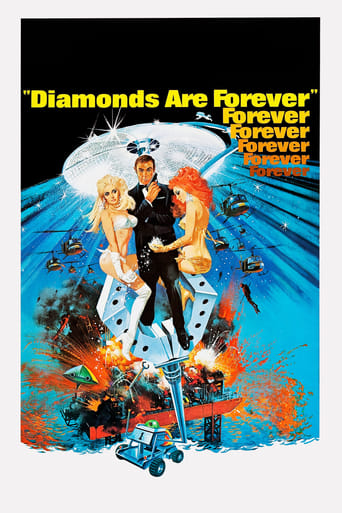
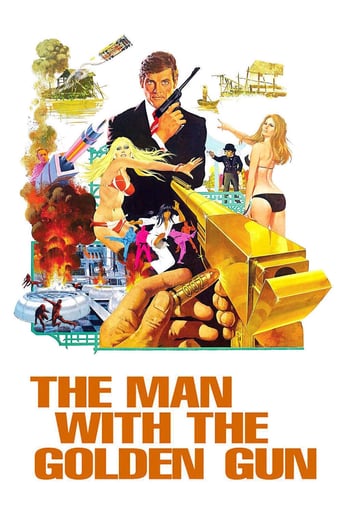
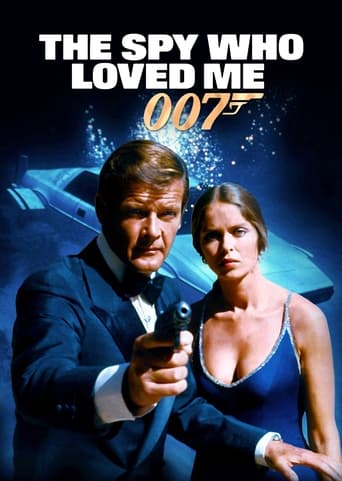


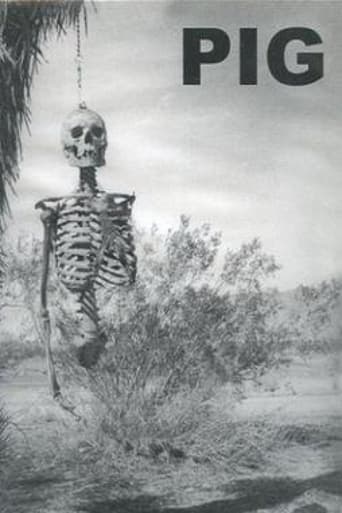
Reviews
One of my all time favorites.
I like movies that are aware of what they are selling... without [any] greater aspirations than to make people laugh and that's it.
It really made me laugh, but for some moments I was tearing up because I could relate so much.
It’s not bad or unwatchable but despite the amplitude of the spectacle, the end result is underwhelming.
Blast of Silence (1961) is a true oddity: most agree the so-called "classic noir" cycle ended around the late 1950s and that so-called "neo-noir" didn't make an appearance until the late 1960s with films like Point Blank. But Blast is a little independent noir about a hit-man in New York during Christmastime, made in 1959 and released in 1961. As far as noir goes, it's rather obscure, probably due to its lack of big names behind or before the camera. It's a shame, because to my mind, both Blast and its director/writer/star Allen Baron are unjustly unsung.One thing which sets Blast apart from A level noir like Double Indemnity, Out of the Past, or even grimy fare like Ace in the Hole is its total lack of glamor. The movie was shot on location guerrilla style, capturing the feel of late 1950s New York without any studio gloss and lending Blast a sense of authenticity. You really feel the atmosphere of the streets, the bars, the grimy apartments where both denizens of the underworld and ordinary folks just scraping by spend their nights. None of the actors are what anyone would call gorgeous or exuding Hollywood charisma; everyone is very ordinary-looking. The acting is weird, sometimes even what one would call weak-- though I would also argue this is a strength, especially in the case of Allen Baron as hit-man Frankie Bono.In many ways, Frankie Bono feels like a proto-Travis Bickle. He too seems to see himself as "God's lonely man," cut off from normal people, uncomfortable with human contact when it comes his way. Like Bickle, we know little of Bono's past, though from his rare outbursts on the subject, we can tell it wasn't so swell. Bono rides the line between being sympathetic and monstrous: he has a sadistic streak and seems to take pleasure in stalking his targets. In one of the most shocking moments of the movie, he even attempts to sexually assault his childhood sweetheart after she invites him over for Christmas out of pity, since violence is the only way he seems to communicate anything, including desire. Baron's performance has often been criticized as "stiff," but this actually fits his misanthropic, socially awkward character. This "stiffness" also makes his violent outbursts and sadistic actions all the more effective.Another controversial element of the movie seems to be the voice over narration. VO narration is common in noir, but it's usually done by the main character; here we have an unseen narrator who directly addresses Frankie himself ("You like being alone-- by now, it's your trademark." "Soon you learned to let the hate out another way."). We have no clue who this narrator is-- it could be God or some guy down the street, or it could even be Frankie himself, so alienated from people that he cannot directly address himself. You may find it intrusive, distracting, or even cheesy, but I personally love the voice-over in Blast of Silence. It's hardboiled and bizarre-- much like the movie as a whole!Blast of Silence is my favorite film noir: it's rough around the edges to be sure, but it features a fascinating anti-hero and a snapshot of 1950s New York City. If you liked Taxi Driver, then you may like this too, as it feels like an older version of the Scorsese film, all the while retaining its own wonderfully weird identity.
It seems there is some kind of connection between a movie being black and white, low-budget and receiving more positive reviews than it actually deserves. Since I love noir movies, I had lots of expectations of Blast of Silence, but the one word that best describes this movie is: dull. To use a line from a Monty Python's sketch: "It's dull, dull, dull..." Almost nothing happens during the entire movie! The music is very annoying, but the worst part is the narration: it fills the whole movie and destroys any tension it could have had, if any. Plot consists in the main character uninterruptedly going from one place to another. Completely overrated and the proof that IMDb ratings are not at all reliable.
Allen Baron didn't make that many films (maybe only two or three at most in a career mostly dominated by TV gigs), but perhaps one near-great film is enough. There are two kinds of directors in this world, my friend: those who make one or two fantastic films that will live on and on, and then those who make several amongst many other excellent or very good films. Allen Baron falls into the former category, and his film Blast of Silence is an example of how to do something right on a super-duper low budget on the streets of New York, with no-name (or not-at-all) actors, and the one big name being Lionel Stander a at-the-time blacklisted actor who was paid $500 to speak Waldo Salt's blisteringly powerful hard-boiled narration.Indeed the narration here is so good that it at times threatens the scenes it comes in on. It's a "you know it, Frankie" type of voice, a combination of some unseen presence looking on and perhaps just a voice of conscience ripped right off the shelf of a paperback. Stander's gravel-voice, a possible inspiration for Rourke in Sin City, and the real locations and hoppy jazz score, all add to this being a delicious fear of film-making. The story itself isn't that much more different than one might see in Melville (not exactly Le Samourai but close - take away the narration, some of the dialog and chunks of the music and its about the same), as a hired gun, Frank Bono (Baron), comes into the Big Apple on a contract killing, and suddenly finds himself in one of those crises of the existential sort.Frank is all alone, and is fine that way, until he connects with a group of guys that run into him who used to be kids at the orphanage together. He sees a woman there that he wants to spend some time with, but this all just starts to mess with his head - that and a bad deal done with a shady, fat gun seller (you might remember from Shock Corridor and Angels Hard as They Come, an unforgettable presence if not great actor) that leads him to questioning the whole job he's on. Baron has some familiar ground he's dealing with, but it's all filmed carefully in Frank's following and casing of his target. The tension mounts brilliantly, and the tone is dark without being pretentious. And those shots of Frank Bono walking on the streets in mostly darkness, fedora and hat, jazz and Christmas songs, are for the film-noir fan just about perfect.If there's a minor drawback, and it should be mentioned, it's that Baron isn't entirely fit in the role of Frank Bono, and as a first time director (save for Lionel Stander and maybe Tucker) he only gets the minimum out of his low-rent cast. On the recent Criterion DVD in an interview Baron said Peter Falk was originally considered for the role. That would've put it over the top, and something out of the ordinary to see Falk in that part. With Baron, doing triple duty as writer, director and actor, he does some decent work in some scenes, but isn't entirely comfortable speaking certain lines of dialog. He works better, and perhaps he himself knew this from seeing early test footage and whatnot, as a silent figure, moving as in Melville like some lone ghost on the streets or looking with a cold, lonely stare like in the jazz club or on a dark street.Blast of Silence is terrific when it sticks to what it should: take to the streets and buildings in Greenwich Village and Harlem and the East Side in crisp black and white and give it the feel of one of the best paperback pulp books you've ever read brought to life. It's like a slightly rusty but practically unassailable ruby. 9.5/10
I recall finding exactly one book on film in the big university bookstore in 1960, a collection of reviews from Newsweek's movie critic. My point is for younger folks who may not know that movies were not considered an art form until the late '60's. Before then, film was deemed a popular entertainment not worthy of serious study. Since Hollywood monopolized the industry and measured success in terms of box office, reducing the medium to little more than a commercial enterprise was not entirely misplaced. This is the landscape in which a nervy little indie like Blast of Silence tried to find some footing. Much of the early over-praise, I think, came from a growing number of folks who wanted film-making to declare greater independence from the Hollywood behemoth- certainly a praiseworthy desire. And, no doubt, the look and feel of the movie is unlike anything Hollywood turned out at the time. Fifty years later, what impresses me most is how competently the film is made, even considering the shoestring budget. The technical aspects, especially the cinematography, are as good as those found in contemporary studio products. The cross-cutting and editing of the night club sequence also show that Baron and crew could handle complex scenes as well as the many long master shots.At the same time, I'm curious as to where the film was shown since Universal did release it. The commercial appeal would, it seems, be limited by several important factors--- short length, over-narration, and unrelenting emphasis on alienation. There are no sympathetic characters; even the promising Lori (McCarthy) proves unreliably devious. Then too, the comparison with controversial Italian director Antonioni is not inapt considering the generally despairing mood and theme. Baron's one-man- effort thus appears neither art film nor commercial product, but something in-between, and where such a hybrid would be shown in those days is intriguingly unclear to me.Despite the rather esoteric character, I think the film has a continuing appeal, maybe not so much as entertainment, but as an object of aesthetic interest. Sure, the plot plus the character of Frank Bono owe a lot to Irving Lerner's similarly themed Murder by Contract of two years before. But the results here carry the whole notion of the outsider to an unusual degree. Even the claustrophobic streets amid towering skyscrapers project a crushing impersonality. At the same time, Bono kills, not only to succeed as a professional killer, but also, -if the narration is to be believed-, to relieve the victim (beneficiary) of the hopeless burden of life. Thus Bono eases into his own death when it comes. At a time when Ike was in the White House and Ozzie and Harriet were on TV, a darker counterpoint is hardly imaginable. As Vietnam would unfortunately demonstrate, it was indeed a film ahead of its time.
Top Streaming Movies











